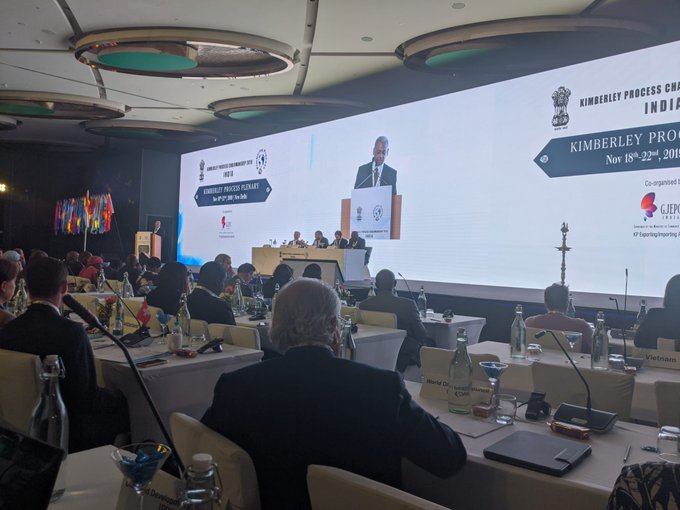Shamiso Mtisi, the Coordinator of the Kimberly Process (KP) Civil Society Coalition has described the grouping as dysfunctional despite the tremendous efforts to find solutions to the many problems that the biggest diamond mining and trading sector is facing today.
“After three (3) years of excruciating negotiations on reform, the KP has said this week: We agree that we don’t agree on anything substantial. The Civil Society Coalition is sure that many among you will not even agree to that. The umpteenth attempt at broadening the scope of the KP to capture contemporary conflict challenges failed to produce any result. The KP has decided to remain a process that merely serves to protect state interests against rebels seeking to overthrow them.
“While many of you will return to your capitals in triumph, victory and celebration for having obstructed widening the KP remit, we will return to our communities who suffer from torture, sexual abuse and killings at the hands of private and public security forces, and armed groups not fighting governments. We will tell them: We’re sorry but the KP doesn’t care. The KP actually prefers to send a message to consumers that they might be better off ethically when they buy synthetic diamonds,” Mutisi said in his closing remarks at the KP civil society coalition meeting held in India last week.
He said that besides Scope, tremendous energy and time has been spent on attempts at creating a Permanent Secretariat and Multi-Donor Fund. These efforts were aimed at filling key shortcomings regarding professionalism, technical capacities and civil society participation in the KP.
“The CSC deplores that discussions on both structures have been kicked into the long grass due to lack of commitment to make this work. It is regrettable that the biggest achievement of this 3-year reform exercise are some modest improvements to the Peer Review AD, whose implementation in light of the KP’s inertia remains to be seen. Not only has this area of reform again needlessly consumed a massive amount of time and energy, it has also forced the coalition to engage in inane discussions on the core foundations of the KP. Discussions in which the equal standing of Civil Society with Industry and Governments were put into question.
“With so much attention focused on what in the eyes of some participants proved to be little more than a frivolous exercise of mutual obstruction, the only substantive step forward during this Plenary has been the adoption of a revised system for monitoring legal exports from the CAR. We commend the CAR Monitoring Team, WGM and the CAR authorities for their joint efforts to reach an agreement on the provisional revisions to the ToR and Operational Framework governing controls on exports. The system will allow for more flexibility and hence, as we hope, for more diamonds from compliant zones to enter into the legitimate supply chain.”
The Civil Society Coalition strongly called on the CAR authorities to make this experiment work and to strengthen its internal controls in order to curb fraud in the country’s supply chains. Mutisi expressed civil society’s wish to positively contribute to the efforts of the CAR by offering participation in the Review Mission which will take stock of KP implementation on the ground.
“Our overall conclusion from this Plenary is one of deep disappointment. While the Kimberley Process on paper is still a tripartite process, in reality it is first and foremost a government-dominated body serving to protect national diamond-sector interests, with some civil society representatives watching on the sidelines. As civil society, we will continue to watch this process, with its tendency to pretend being something broader and more effective than it actually is. But while the KP continues to lose relevance and credibility, we will look ever more outside the process to promote better diamond governance and to defend the interests of diamond mining affected communities,” Mutisi added.
